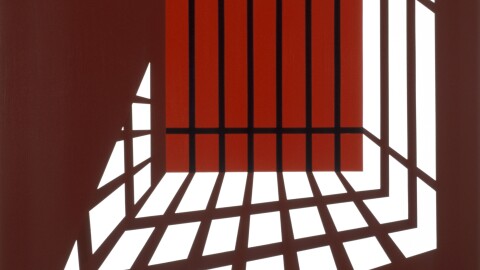A state lawmaker says the way bail is set for people who are arrested can sometimes be a backwards process. He proposes a way to overhaul the system and base it on risk rather than resources.
Markcus Brown was picked up at a Dayton bus station in May for violating the transit authority’s dress policy, wearing a hoodie and baggy pants. He spent nine days in jail because he couldn’t afford bail.
Meanwhile, others who are arrested for more serious, violent crimes leave jail after making bail.
Republican Rep. Jon Dever is proposing a change. If the person poses a risk, then bail is higher. The lower the risk, the lower the bail, if any.
“And realizing that all of our decisions when it comes to bail should be based on evidence and not how much money you have in your back pocket,” Dever said.
The conservative Buckeye Institute is backing the changes, and national criminal justice reform groups are supporting bills like Dever's, saying the issue needs to be addressed around the country.
"Cash bail is an inefficient, expensive, unfair means of protecting communities that has proven no guarantee to stopping repeat offenders," wrote Daniel Dew, a legal fellow at the Institute, in a report released Monday titled “Money Bail: Making Ohio a More Dangerous Place to Live."
Dew said he knows that conservatives have a reputation when it comes to criminal justice issues.
"Traditionally, conservatives have been viewed as 'lock em up, throw away the key’ type people," Dew said. But he says bail reform is in line with conservative values..
"We want limited government, and we want to make sure that people are getting a good return on their investment for their tax dollars,” Dew says.
He says governments spend too much money jailing defendants accused of low-level crimes, simply because those defendants can't afford to post bail.
"You can have low-level people who are held in for things like drunken jaywalking or trespassing because they don't have $500 or $1,000 dollars,” he says. "Instead of the rather arbitrary approach of cash bail, with its inherent prejudice against poorer defendants, courts should take a more individualized view of each case to deny bail for the truly dangerous, and customize release conditions for those freed while awaiting trial."
Dew says a better system would be like the one used by the Lucas County Court of Common Pleas in Toledo. In 2015, the court implemented a "Public Safety Assessment" algorithm, designed by the Laura and John Arnold Foundation, to determine whether a given defendant would be a risk to the public if released pending trial.
A later study found that even as the number pretrial releases went up, the rate of crimes committed by those defendants went down.






